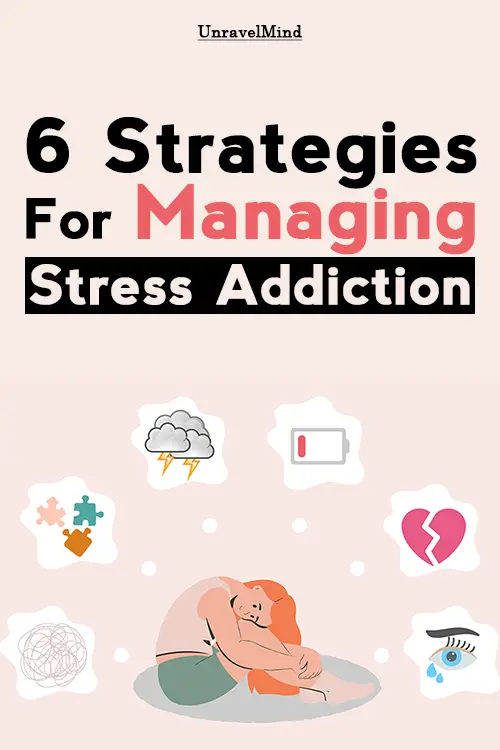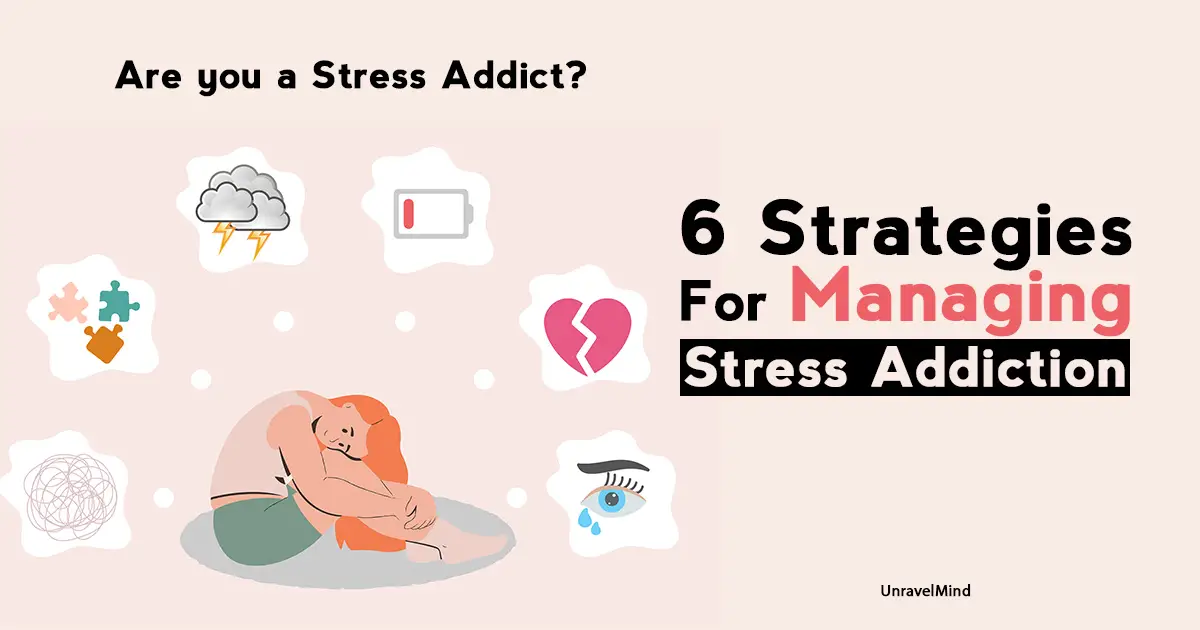For the majority of us, life in 2023 is synonymous with stress. We have to admit that almost everything we do, just seems to add to our stress. Even if the activities are supposed to be entertaining, like browsing social media!
Now, we know that prolonged stress is extremely harmful to our health. But did you ever feel jittery or unable to relax when you got that rare stress-free occasion? Do you notice yourself piling on more and more work onto your plate even though you know very well you are overwhelmed? Well, this might be because of “stress addiction”.
How Does Stress Work?
Stress is actually a physiological response to certain situations or stimuli, called “stressors”. When we are subjected to these stimuli, three hormones are secreted by the adrenal gland simultaneously. They are noradrenalin, adrenalin, and cortisol. These three, in tandem, push our mental and physical state into an emergency state.
In this state, every bit of energy in the body is directed toward your muscle and brain activity. As the University of Rochester Medical Center’s psychiatry professor, Jan Moynihan, puts it, “These hormones step in to protect us from danger”.
What Is Stress Addiction?
This physiological response is not the problem. We evolved this response to survive in moments of danger in the days when we had to fight for our lives constantly. Today, we do not. However, our societal advancement has not translated to our biological evolution. So, in 2023, our brain does not understand that having to meet a deadline is not the same kind of stressor as being hunted by a predator in the forest.
Moreover, these moments of stress responses can feel great. For example, during this short emergency state (when the hormones are in control), our cognitive function gets a boost. It’s one of the reasons behind productivity being better the nearer we get to a deadline. However, people can get addicted to these moments of heightened abilities and senses. When a person repeatedly seeks out these moments by willfully adding stressors to their lives, it is stress addiction.
How Do You Know If You Are A Stress Addict?
People who are suffering from stress addiction will often try to make their lives as busy and difficult as possible. It does not matter to them how well they can deliver. For them, they have to keep their schedules overflowing. Otherwise, they can even feel depressed. Moreover, these stressful situations can be anything, as an individual determines what a “stressor” is for them, according to Moynihan.
The physical symptom of stress addiction is a failing body. It includes sleeplessness, headaches, anxiety, back pain, frequent colds, rashes, tight muscles, and even eating disorders. Dr. Natasha Turner, a naturopathic doctor, says that every one of them can be a signal from your body that it cannot handle anymore. She explains that a prolonged release of these three hormones can be extremely detrimental to your immune, nervous system, brain, bones, and muscles.
If you are suffering from any of these symptoms, then it is highly likely that you are a stress addict. So, how can you reduce your craving for stress and essentially save your body? Here are 6 methods:
6 Methods To Deal With Stress Addiction
1. Identify And Deal With The Stressors
You can’t deal with stress addiction without knowing the things that are stressful for you. It can be your job, it can be talking with someone, or it can be a hobby that has just become too time-consuming. After you find it/them, think about why you have been unable to leave it/them for so long.
The reason can be something superficial, like being afraid of losing out on an opportunity. Or, it can be something mental, like it can be about being perceived as an escapist. Often people tend to use being busy as a way to avoid unhappy thoughts. Finding and vocalizing the cause will help you to confront it and let go of work that is unnecessary.
2. Laughter
According to research, the best medicine for stress is laughter. Studies show that this joyful response release feel-good endorphins while reducing the stress hormones. Honestly, it is also the easiest way to begin your journey of dealing with stress. Think about it, when is the last time you had a good, hearty laugh?
3. Maintain A Sleep Schedule
The first thing that goes from the routine whenever there is extra work is our sleep. However, when we sleep, it is a signal to our body that we are in a safe place and no longer need the stress hormones. That is when our stress hormones get reduced naturally.
It is also the time when the body works on recovery. The more rested your body is, the better equipped it will be while facing the next stressful moment! So try not to forego your sleep.
4. Meditation
This is one of the oldest, and most practiced methods of stress reduction in human history. However, being able to actually meditate is a skill. Just do it for ten minutes every day, and you will soon feel less stress and anxiety.
5. Cut Down On Caffeine
This includes coffee and every other kind of energy drink. These drinks artificially increase the production of your stress hormones, increasing how stressed you are. If you really cannot do without such beverages, try green tea which contains theanine – a mind-calming agent that helps with concentration and focus.
6. Focus On What Is Important
Finally, all of these stress addiction methods will only work if you manage to focus on healing and recovery. If your focus remains on being busy and working, they will not help as much. So, find the reason why you want to deal with your stress addiction and focus on it.
Frequently Asked Questions
What Are The Symptoms Of Stress Addiction?
There are both mental as well as physical symptoms. Physical symptoms include fatigue, higher blood pressure and heart rate, insomnia, and weakened immunity. Mental symptoms include insomnia, appetite change, depression, irritability, anxiety, and withdrawal.
Can Stress Become Addictive?
Stress is, essentially, our brain tricking our body into believing it can perform better than it actually can. In addition to the three stress hormones, dopamine, a “feel good” hormone, is also released during stress. This is believed to be another factor behind stress addiction. So, yes, stress can be addictive.
What Are Some Warning Signs Of Stress?
Some signs of the stress being overwhelming are panic attacks, chest pains, indigestion, breathing difficulties, and degrading eyesight.
Pin this article for later



